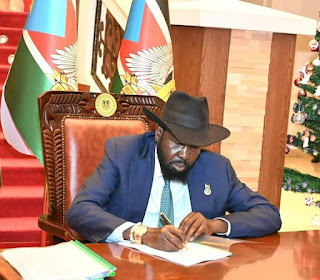6.96 million South Sudanese will face acute levels of food insecurity by July warns UN Agencies
UN Agencies together with the government of South Sudan have hit an alarm bell that an estimated 61 per cent of the population in South Sudan will experience critical lack of food in the next few months.
According to the Integrated Food Security Phase Classification (IPC) update released today by the Government of South Sudan in collaboration with the Food and Agriculture Organization of the United Nations (FAO), the United Nations Children's Fund (UNICEF) and the World Food Programme (WFP) and seen by Good News Radio, an estimated 6.96 million South Sudanese will face acute levels of food insecurity or worse by the end of July.
An estimated 21,000 people will likely face a catastrophic lack of food access while about 1.82 million will face Emergency and another 5.12 million people will face Crisis levels of food insecurity.
The states that will be affected most includes Jonglei, Lakes, Unity and Northern Bahr el Gazal states.
The report indicated that the stock level of 2018 is lower and the fact that this years’ rains delayed, has contributed to food insecurity hitting record level as well as conflict that disrupted last years’ cultivation
“The ongoing lean season started early following record low stocks from the poor 2018 harvest and has been further extended by the delayed onset of 2019 seasonal rains”. The statement said
“Persistent economic instability, the effects of previous years of conflict and related asset depletion and population displacements, have contributed to the disruption of livelihoods and has reduced people’s ability to access food. High food prices caused by last year’s poor harvests, market disruptions due to insecurity, high transport costs and a depreciated currency are also contributing to the high levels of acute food insecurity”. The statement adds
UN Agencies said that the only escape to this looming catastrophe is to implement the peace agreement in order to achieve political stability. This, according to the report, will allow urgent and scaled-up humanitarian assistance to protect livelihoods and boost agricultural production across the country to save lives.
FAO says it will provide new varieties of seeds suited to local conditions and training in techniques that will reduce losses from drought and flooding in response to food insecurity. This is in addition to supporting farming, fishing and agro-pastoral households with vegetable and crop seeds, agricultural tools and fishing equipment. This is also animal vaccinations and other veterinary services.
UNICEF, WFP will also assist in response to the imminent crisis.






Comments
Post a Comment